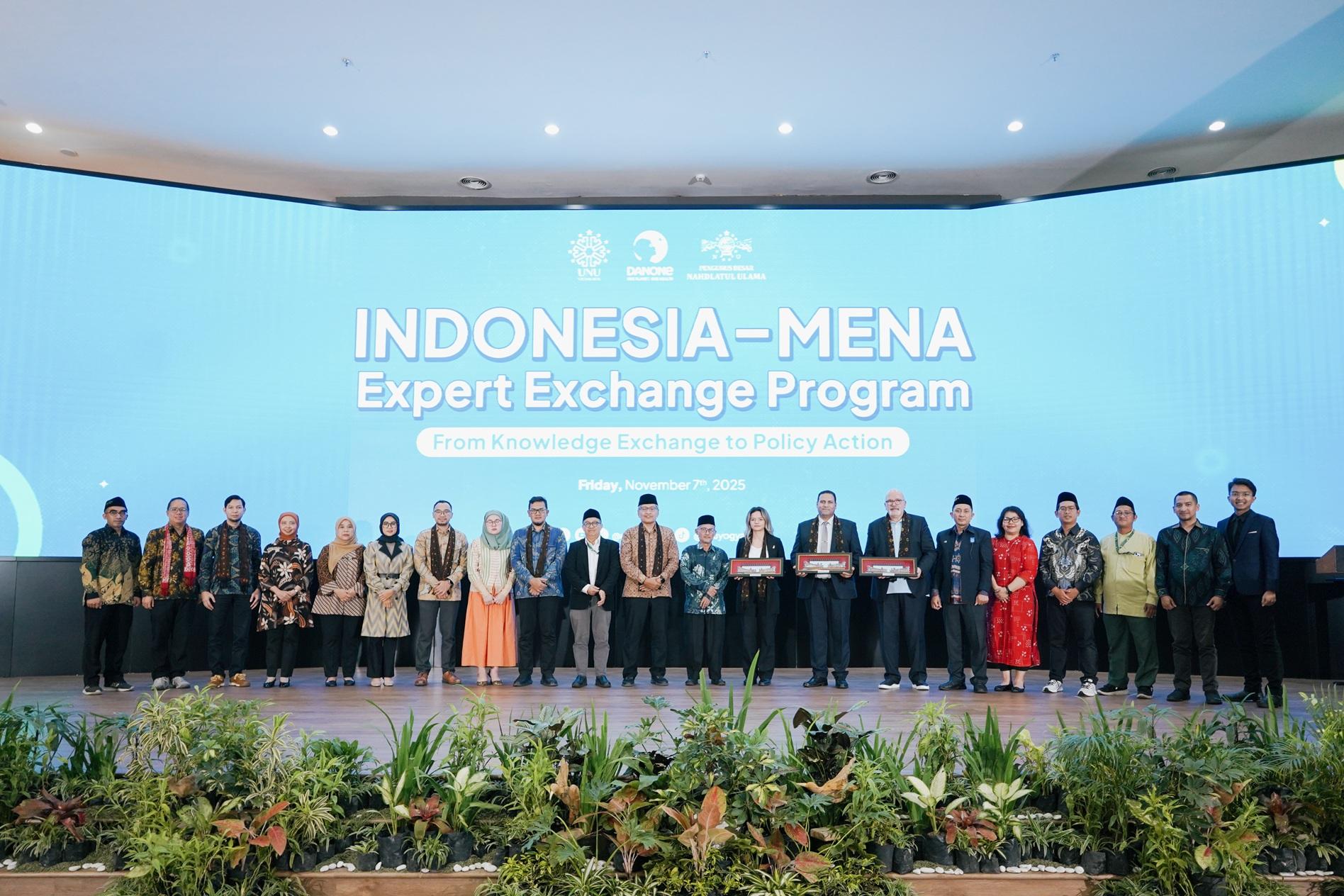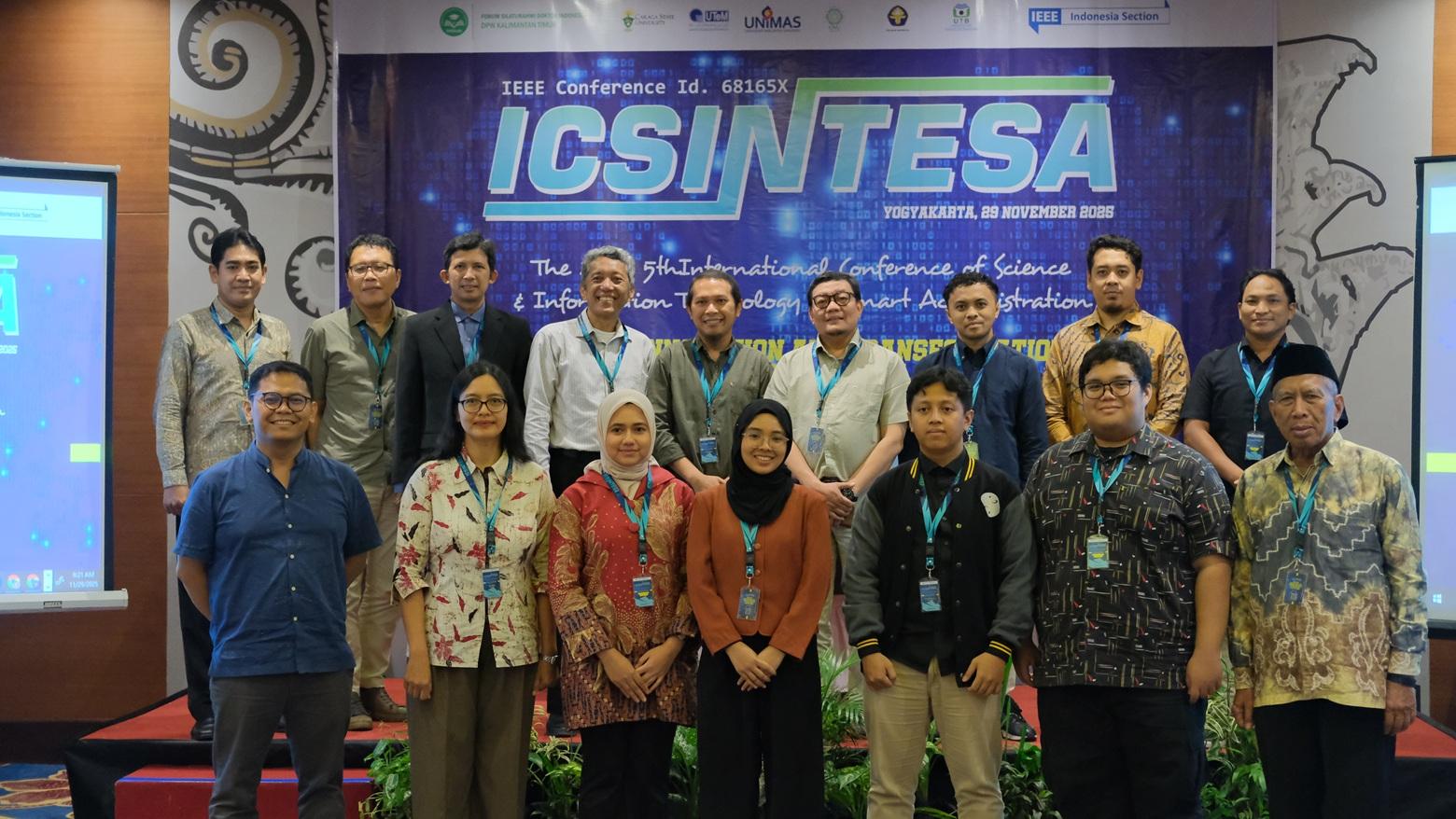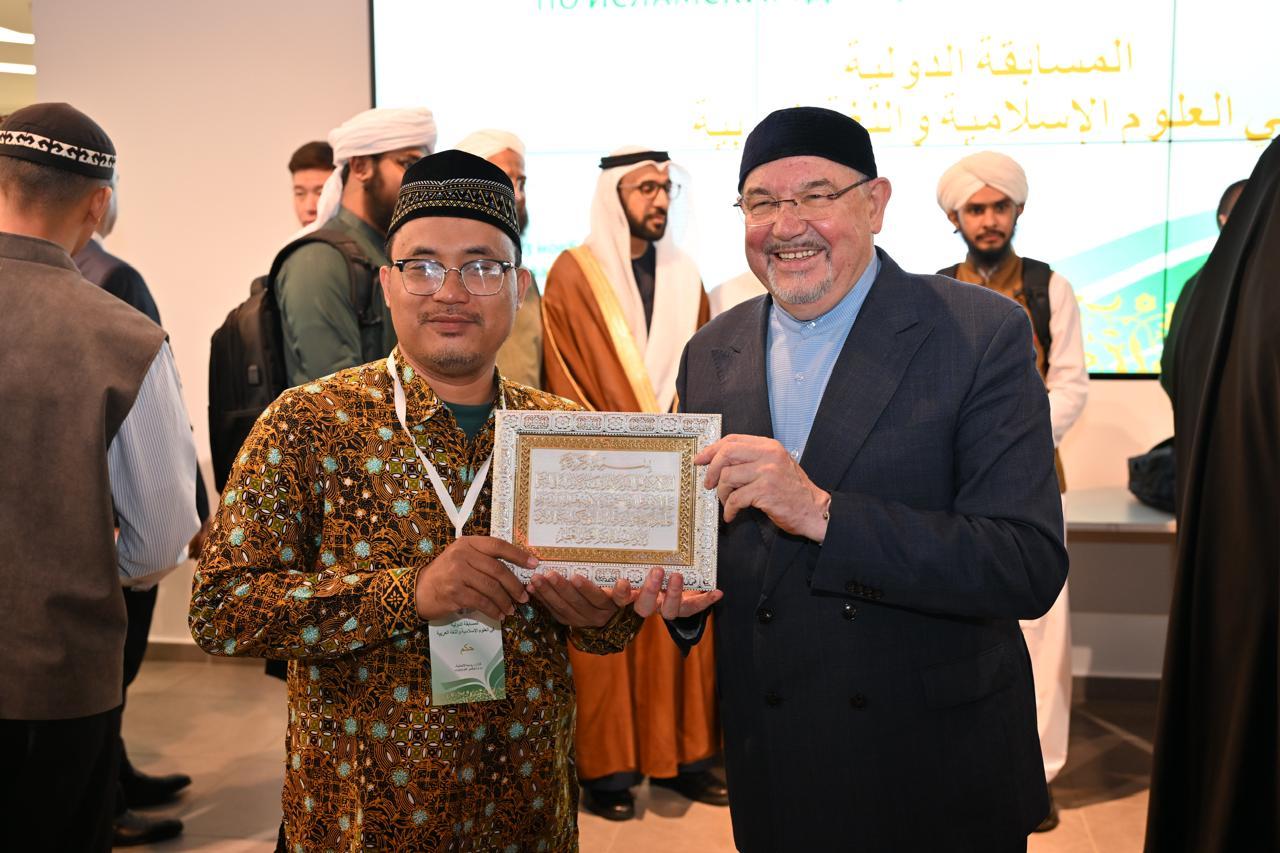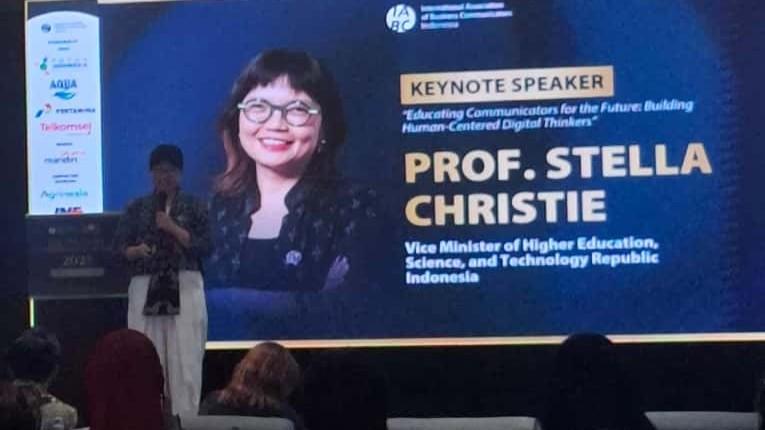Stunting and Anemia Remain Global Health Challenges, Experts from Egypt and Türkiye Gather at UNU Jogja to Formulate Solutions
Published by Latifatussolikhah, 10 Nov, 2025
Est. 4 Minutes

Yogyakarta, Indonesia – UNU Jogja welcomed academics from Türkiye and Egypt to share experiences in addressing stunting and anemia through improved nutrition and public health quality on Friday, November 7.
Their presence at UNU Jogja, marked the main and final agenda of the “Indonesia–Middle East and North Africa (MENA) Expert Exchange 2025” program organized by Danone Indonesia.
Previously, the program facilitated visits of Indonesian scholars to Türkiye and Egypt. During their stay in Türkiye, participants explored the development of the halal industry, while their visit to Egypt focused on agriculture and food security.
In this concluding session, experts discussed efforts to address stunting and anemia—two health conditions that remain serious challenges in Indonesia. According to the 2024 Indonesian Nutrition Status Survey (SSGI), the prevalence of stunting reached 19.8 percent, while the 2018 Basic Health Research (Riskesdas) data revealed that one in three Indonesian children suffers from anemia.
The government has set a target to reduce stunting rates to 14.2 percent by 2029 through the National Strategy for Accelerating Stunting Prevention. Efforts include improving the quality of community health posts (Posyandu), supporting exclusive breastfeeding and immunization, providing supplementary food for pregnant and breastfeeding mothers as well as young children, and launching the new Free Nutritious Meal (MBG) program.
Stunting and anemia also remain major health challenges in many countries. The Global Nutrition Report notes that the prevalence of stunting among children under five in Türkiye is 6 percent, while anemia among women of reproductive age (15–49 years) stands at 30.9 percent.
Meanwhile, WHO and UNICEF data show that in Egypt, 21 percent of children under five are stunted, and around 27 percent of children aged 6–59 months as well as 28.3 percent of women of reproductive age suffer from anemia.
Acting Rector of UNU Jogja, Suhadi Cholil, emphasized that these figures underline the importance of cross-country learning and collaboration in tackling stunting and anemia.
“We need to design comprehensive and sustainable nutrition interventions, improve access to nutritious food, promote nutrition education, and strengthen primary healthcare systems,” he stated.
He added that Indonesia seeks to learn from the successful approaches of Türkiye and Egypt in building integrated public health systems that combine evidence-based nutrition interventions, strong community engagement, and effective health governance.
“Türkiye’s experience in integrating nutrition education into community health services, along with Egypt’s long-standing expertise in maternal and child health programs, offers valuable insights for Indonesia’s efforts to accelerate the reduction of stunting and anemia,” he continued.
To that end, experts from Türkiye and Egypt gathered in a discussion forum to exchange knowledge and best practices while formulating joint solutions to these health challenges.
Representing Türkiye were Prof. Dr. Sarp Üner, a public health expert from Lokman Hekim University; Elman Necefzade, an official from the halal certification body GİMDES; and Duygu Güçlü, a researcher from Bezmialem Vakıf University.
From Egypt, the delegation included Prof. Dr. Adel AbdElazeem, agricultural scientist and President of the Agricultural Research Centre (ARC), and Dr. Abdelhamed Elshazly, a lecturer from Al-Azhar University.
Since November 3, 2025, the Turkish and Egyptian experts have been in Indonesia for site visits to various locations related to anemia and stunting prevention. They convened at UNU Jogja to jointly formulate solutions to these pressing health issues.
The event was also attended by PBNU Chairman KH Ulil Abshar Abdalla and Danone Indonesia’s Sustainability Development Director, Karyo Wibowo.
Program Manager of Indonesia–MENA Expert Exchange 2025, Maria Fauzi, added that this expert exchange initiative will be followed up through several collaborations, including joint research and publications, policy recommendations, and other partnership opportunities.
“This program aims to strengthen institutional collaboration among universities, professional associations, and industry players to advance research and innovation in public nutrition. Equally important, it fosters mutual understanding and cooperation in nutrition and public health among Indonesia, Türkiye, and Egypt,” she concluded. [Arif]
Share
Related News

The 2025 ICSINTESA International Conference Held in Yogyakarta, with UNU Jogja Serving as Main Co-Host
Published by Latifatussolikhah, 2 Dec, 2025 | Duration. 2 Minutes

UNU Jogja Islamic Studies Lecturer Selected as Judge at International Scientific Olympiad in Russia
Published by Latifatussolikhah, 21 Nov, 2025 | Duration. 2 Minutes

Vice Minister for Higher Education, Science, and Technology Stella Christie: Education as a Solution to Address Misinformation and Disinformation in the Digital Era
Published by Latifatussolikhah, 14 Nov, 2025 | Duration. 3 Minutes
Popular News
Haflah Ikhtitam at UNU Jogja: Santri Graduated, Pesantren Values Strengthened as Student Foundation
Published by Latifatussolikhah, 27 Nov, 2025 | Duration. 2 Minutes
Yogyakarta Cultural Showcase: UNU Jogja Delegation Wins 2nd Place Nationally at KMI Expo XVI 2025
Published by Latifatussolikhah, 28 Nov, 2025 | Duration. 2 Minutes
UNU Jogja Confers Degrees on 326 Graduates, Including Two Students with Disabilities
Published by Latifatussolikhah, 25 Nov, 2025 | Duration. 3 Minutes
UNU Jogja Student Wins 3rd Place National Award with Chlorella-Based Food Innovation
Published by Latifatussolikhah, 21 Nov, 2025 | Duration. 3 Minutes
